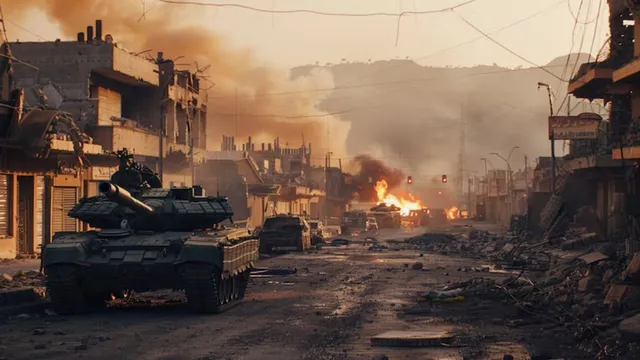- By Supratik Das
- Tue, 24 Jun 2025 12:06 PM (IST)
- Source:JND
Amid increasing Iran-Israel tensions, Iran's retaliatory airstrike on American military bases in Qatar raised global anxiety over a potential World War III. Increasing Middle East turmoil combined with great power rivalries in Eastern Europe and Asia have sparked global concerns regarding possible safe havens should a world war break out. As US strikes hit underground Iranian nuclear facilities at the weekend with 30,000-pound bunker-buster bombs, foreign powers such as Russia and China have criticised the move, already speculating on further escalation. Russia's Ambassador to the UN, Vassily Nebenzia, cautioned that Washington has "opened a Pandora's box" that can compromise global security. While global leaders, including US President Donald Trump, claim efforts are being made for de-escalation, tensions remain high.
Best Countries That Can Provide Refuge If World War III Starts
These nations are distinguished by their political neutrality, far-off location, autonomy, and non-strategic military importance, which may keep them off the radar of major global powers engaged in conflict.
1. Antarctica
While not a sovereign country, Antarctica is regarded as one of the safest locations during a nuclear conflict. Its distant location and lack of any permanent military presence render it geopolitically insignificant. The extreme climate poses a survival issue, but its wide, unpopulated expanse makes it an unlikely target.
2. New Zealand
Consistently ranked among the most peaceful nations globally, New Zealand has natural defenses in the form of its mountainous landscape and remoteness. It is a first choice for refuge in times of international war due to its neutrality and independent agricultural economy.
3. Iceland
With no history of military involvement in global wars and a top ranking on the Global Peace Index, Iceland offers clean energy, abundant freshwater, and a resilient infrastructure, despite possible indirect exposure to fallout from Europe.
4. Switzerland
Renowned for its neutrality, Switzerland has large nuclear bunkers and is shielded by the Alps. It remained neutral in the two World Wars and maintains military readiness purely for defence. The geopolitical position of the country makes it highly unlikely to be engaged in a future major world conflict.
5. Fiji
A small island nation over 2,700 miles from Australia, Fiji’s geographic isolation, limited military footprint, and commitment to peaceful diplomacy make it a safe retreat. Its forests and fisheries also support self-sufficiency.
6. Bhutan
The landlocked Himalayan kingdom of Nepal proclaimed its neutrality in 1971 and continues to pursue a non-aligned foreign policy. Its mountainous terrain and limited strategic importance render it well-insulated from international military interests.
7. Argentina
Abundant in arable land and water resources, Argentina is among the most likely countries to endure a nuclear threat. Although it has a history of local conflicts, its food security and geopolitical distance relative to other global players place it in the stable, safe zone category.
ALSO READ: Six Iranian Missiles, Zero Impact: How PAC-3 Defended US Air Base In Qatar
8. Greenland
Although a Danish possession, Greenland is politically non-aligned and physically remote from power centers. It has a sparse population and no strategic resources to make it an unlikely target.
9. Indonesia
Indonesia's foreign policy is one of "free and active" and adheres to non-alignment in international disputes. A large archipelago structure offers both concealment and regional isolation.
10. Tuvalu
With a mere 11,000 residents and little strategic importance, Tuvalu is still well away from the concerns of the great powers. Its rudimentary infrastructure and isolated position in the Pacific Ocean make it an added safe haven.
ALSO READ: Qatar Opens Airspace After Trump Announces Israel-Iran Ceasefire; IndiGo Issues Travel Advisory
Rather than these countries, South Africa's fertile soil, fresh water resources, and up-to-date infrastructure make it capable of self-sufficiency amid crises. Chile's long, secluded coastline and abundance of natural resources provide the same potential for advantage, especially in a nuclear winter crisis.
With tensions around the world at a tipping point, more governments and individuals are going through contingency plans. No nation is assured of absolute security, but geopolitical neutrality, remoteness from the world's geography, and independence could prove the determining elements for survival in a war-torn world. As world leaders navigate the worsening crisis in the Middle East, the hope remains that diplomacy prevails and lists like these remain only hypothetical guides, not necessities.

